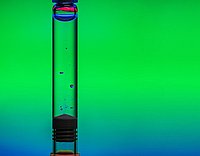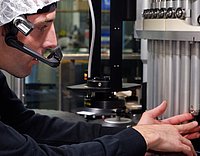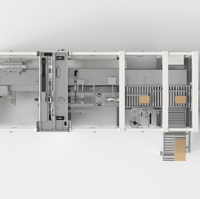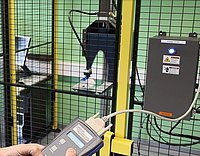
Solutions
Software solutions
Handling systems
Inspection
Packaging machines
Packaging solutions
Consulting
Services
Aseptic isolator
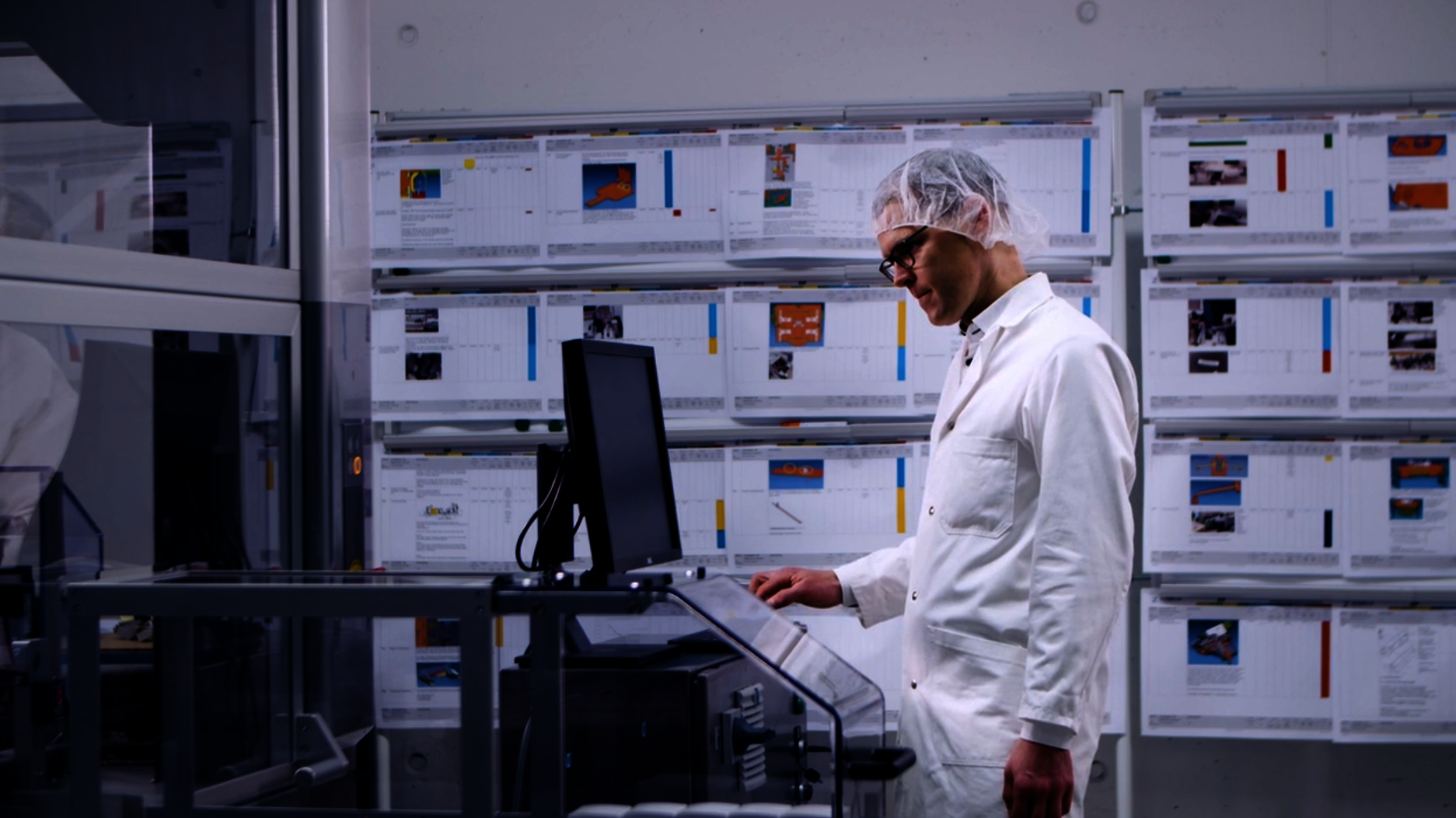
What is an aseptic isolator?
An aseptic isolator is a specialized containment device designed to provide a controlled and sterile environment for handling pharmaceutical products and processes. By maintaining an aseptic barrier, isolators are integral to preventing contamination during the manufacturing and compounding of sterile products. They are equipped with advanced technologies such as HEPA filtration systems, positive or negative pressure control, and bio-decontamination systems to meet strict regulatory and quality standards in pharmaceutical manufacturing.
Aseptic isolators are commonly used in the production of high-risk medications, pharmaceutical compounding, and processes that require restricted access to ensure sterility.
How aseptic isolators work
Aseptic isolators create a closed and controlled environment using several key mechanisms:
- Filtration systems: HEPA filters remove particulates from the air, ensuring a sterile working space.
- Pressure control: Positive pressure is used to prevent contaminants from entering the isolator, while negative pressure is applied in containment scenarios, such as handling hazardous substances.
- Bio-decontamination: Systems like vaporized hydrogen peroxide (VHP) effectively sterilize the interior and equipment.
- Barrier technology: Restricted Access Barrier Systems (RABS) and transfer ports minimize the risk of contamination during material handling.
These features work together to maintain a sterile and safe environment throughout pharmaceutical processes.
Applications in pharmaceutical manufacturing
Aseptic isolators are widely employed across various pharmaceutical operations:
- Sterile compounding: Used in hospital pharmacies and compounding facilities for preparing personalized or high-risk medications.
- Pharmaceutical isolators: Ensures sterility in the production of vaccines, biologics, and injectable drugs.
- Quality assurance testing: Supports sterility testing by creating a contamination-free zone for microbiological assays.
- Containment of hazardous substances: Used to handle toxic or biohazardous materials, ensuring safety for operators and the environment
Benefits of aseptic isolators
The adoption of aseptic isolators provides numerous advantages for the pharmaceutical industry:
- Enhanced sterility: Ensures a contaminant-free environment for manufacturing and compounding processes.
- Improved safety: Protects both the product and operators from exposure to hazardous materials.
- Cost-effectiveness: Reduces the need for large-scale cleanrooms by providing localized aseptic zones.
- Regulatory compliance: Meets global standards for sterile manufacturing, including GMP guidelines and ISO requirements
Challenges in aseptic isolator implementation
Despite their benefits, aseptic isolators present some challenges:
- High initial investment: Advanced isolator systems require significant upfront costs for installation and maintenance.
- Complex operation: Operators must undergo specialized training to handle isolator systems effectively.
- Integration issues: Aligning isolator systems with existing manufacturing processes can be technically demanding
Future trends in aseptic isolators
The future of aseptic isolators is being shaped by innovations such as:
- Automated bio-decontamination: Enhances efficiency and reduces manual intervention.
- Smart monitoring systems: Real-time tracking of environmental conditions, such as pressure and filtration performance.
- Sustainable designs: Incorporates energy-efficient and eco-friendly materials to reduce operational costs and environmental impact.
These advancements are poised to make aseptic isolators more efficient, reliable, and adaptable to evolving pharmaceutical manufacturing needs
Key takeaways
- Aseptic isolators provide a sterile and controlled environment, essential for manufacturing and handling pharmaceuticals.
- They incorporate HEPA filtration, pressure control, and bio-decontamination systems to maintain sterility.
- Widely used in sterile compounding, quality assurance, and hazardous material containment.
- Innovations in automation and sustainability are shaping the future of isolator technology.


